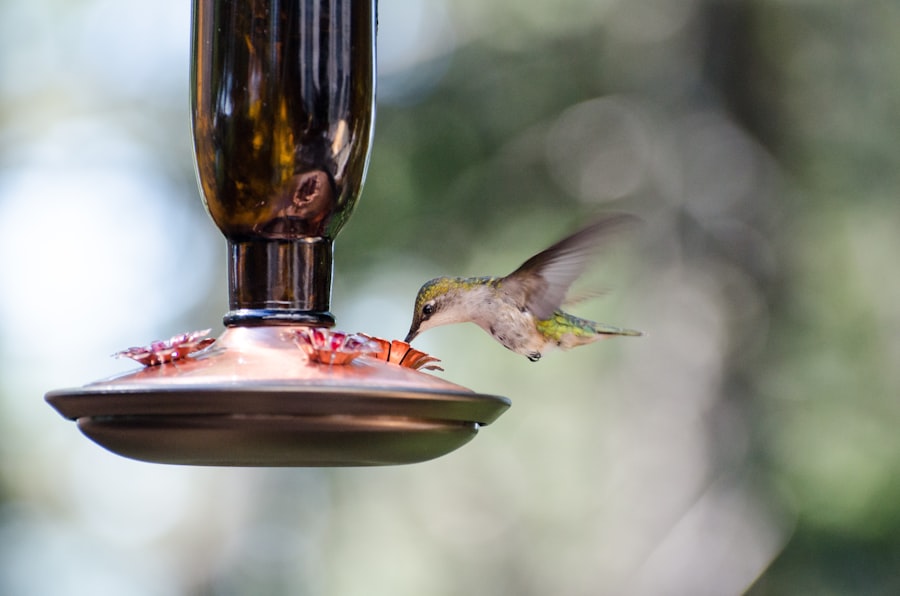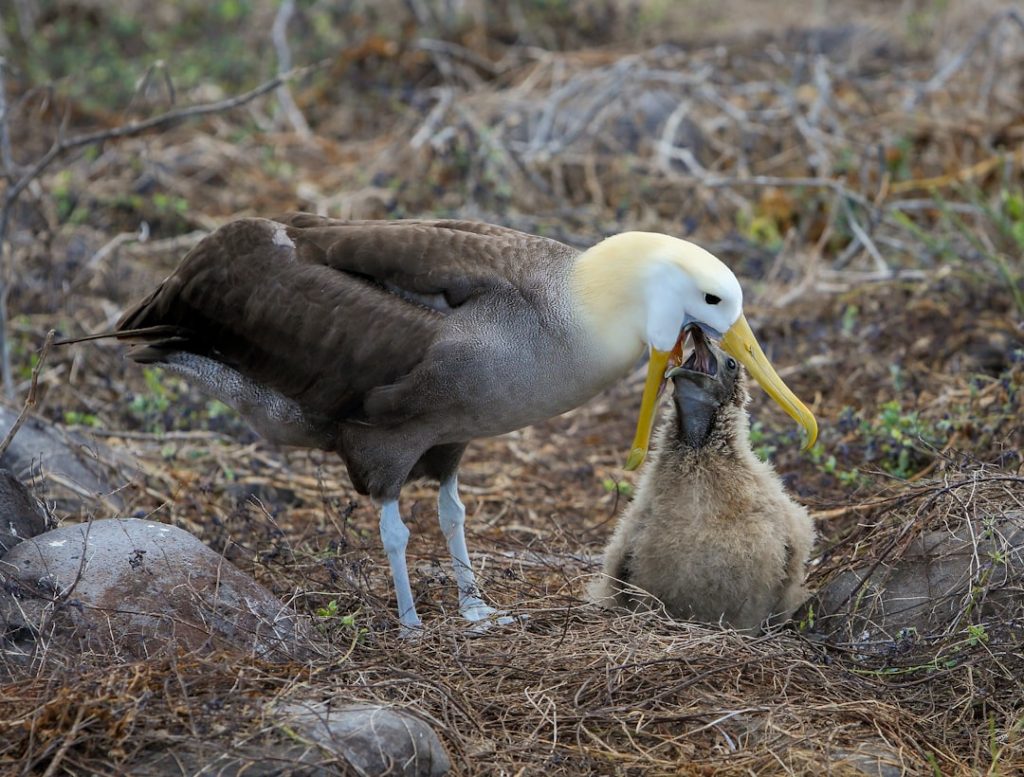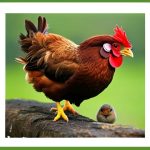Starter feed is a crucial component in the early development of baby chickens. It is specifically formulated to meet the nutritional needs of chicks during their first few weeks of life. This specialized feed contains higher levels of protein, vitamins, and minerals that are essential for the growth and development of young chicks.
The protein content in starter feed is particularly important as it supports muscle and feather development, as well as overall growth. Additionally, starter feed is designed to be easily digestible, ensuring that the delicate digestive systems of baby chickens can efficiently process and absorb the nutrients they need to thrive. Furthermore, starter feed plays a vital role in establishing a strong foundation for the future health and productivity of the chickens.
The nutrients provided in starter feed support the development of a healthy immune system, which is crucial for disease resistance and overall well-being. Additionally, the balanced nutrition in starter feed helps to promote proper bone development, organ function, and overall vitality in young chicks. Without the essential nutrients provided by starter feed, baby chickens may be at risk for developmental issues, poor growth, and increased susceptibility to diseases.
Therefore, it is imperative to understand the importance of starter feed in providing the necessary nutrients for the healthy growth and development of baby chickens.
Table of Contents
- 1 Determining the Ideal Duration for Feeding Starter Feed
- 2 Transitioning from Starter Feed to Grower Feed
- 3 Monitoring the Growth and Development of Baby Chickens
- 4 Factors to Consider when Deciding on the Duration of Starter Feed
- 5 Addressing Common Concerns and Questions about Starter Feed
- 6 Ensuring the Health and Well-being of Baby Chickens through Proper Nutrition
- 7 FAQs
- 7.1 What is starter feed for baby chickens?
- 7.2 How long should baby chickens be kept on starter feed?
- 7.3 What happens if baby chickens are kept on starter feed for too long?
- 7.4 Can baby chickens be transitioned to grower feed before 6-8 weeks?
- 7.5 What should be considered when selecting starter feed for baby chickens?
Key Takeaways
- Starter feed is crucial for the healthy growth and development of baby chickens, providing essential nutrients and energy for their early stages of life.
- The ideal duration for feeding starter feed is typically 6-8 weeks, but can vary based on factors such as breed, growth rate, and overall health of the chicks.
- Transitioning from starter feed to grower feed should be done gradually over a period of 1-2 weeks to allow the chicks’ digestive systems to adjust.
- Monitoring the growth and development of baby chickens is important to ensure they are thriving and reaching their milestones, such as weight gain and feather development.
- Factors to consider when deciding on the duration of starter feed include the breed of the chicks, their growth rate, and any specific health concerns or conditions they may have.
Determining the Ideal Duration for Feeding Starter Feed
Typical Duration for Feeding Starter Feed
Baby chickens typically require starter feed from hatching until they are around 6-8 weeks old. At this stage, they can transition to grower feed. However, the specific duration may vary depending on factors such as breed, growth rate, and overall health of the chicks.
Monitoring Growth and Behavior
It is crucial to closely monitor the growth and behavior of the chicks to determine when they are ready to transition to grower feed. Some breeds or individual chicks may require an extended period of feeding starter feed to support their growth and development. Environmental factors such as temperature and housing conditions can also impact the duration for feeding starter feed.
Assessing Readiness for Grower Feed
To determine when the chicks are ready to transition to grower feed, it is essential to observe their growth rate, feather development, and overall health. By carefully assessing these factors, poultry farmers can ensure that the chicks receive the appropriate nutrition for their specific needs, ultimately contributing to their long-term health and productivity.
Transitioning from Starter Feed to Grower Feed

As baby chickens approach 6-8 weeks of age, it is important to transition them from starter feed to grower feed to support their changing nutritional requirements. Grower feed is formulated with lower levels of protein than starter feed, as the rapid growth phase of the chicks begins to slow down. Additionally, grower feed contains essential nutrients such as vitamins and minerals that are tailored to support the continued growth and development of young chickens.
The transition from starter feed to grower feed should be gradual, allowing the chicks’ digestive systems to adjust to the new feed. It is recommended to mix starter and grower feed together for a period of time, gradually increasing the proportion of grower feed while decreasing the amount of starter feed. This gradual transition helps to minimize any digestive upset that may occur when introducing a new type of feed.
Additionally, providing access to clean water at all times is essential during this transition period to support proper digestion and hydration. By carefully managing the transition from starter feed to grower feed, poultry farmers can ensure that their young chickens continue to receive the appropriate nutrition for their stage of growth, setting them up for long-term health and productivity.
Monitoring the Growth and Development of Baby Chickens
Monitoring the growth and development of baby chickens is essential for ensuring that they receive the appropriate nutrition and care throughout their early stages of life. Regular observation of the chicks’ behavior, physical appearance, and overall health can provide valuable insights into their well-being and nutritional needs. It is important to monitor factors such as weight gain, feather development, and activity levels to assess the progress of the chicks’ growth and development.
Additionally, regular health checks by a veterinarian or experienced poultry professional can help identify any potential issues or deficiencies that may impact the growth and well-being of the chicks. By closely monitoring the growth and development of baby chickens, poultry farmers can make informed decisions regarding their nutrition, housing, and overall care, ultimately contributing to their long-term health and productivity.
Factors to Consider when Deciding on the Duration of Starter Feed
When determining the duration for feeding starter feed to baby chickens, there are several important factors that should be taken into consideration. The breed of the chicks plays a significant role in determining their nutritional requirements and growth rate. Some breeds may require an extended period of feeding starter feed to support their rapid growth and development, while others may be ready to transition to grower feed at an earlier age.
Environmental factors such as temperature, humidity, and housing conditions can also impact the duration for feeding starter feed. Chicks raised in colder temperatures may require a longer period of feeding starter feed to support their energy needs and overall growth. Additionally, the overall health and condition of the chicks should be closely monitored when determining the duration for feeding starter feed.
Chicks that are thriving and growing at a healthy rate may be ready to transition to grower feed earlier than those who require additional time to reach optimal growth and development. By considering these factors, poultry farmers can make informed decisions regarding the duration for feeding starter feed, ultimately supporting the long-term health and productivity of their young chickens.
Addressing Common Concerns and Questions about Starter Feed

Do Chicks Need Supplements or Additives in Their Starter Feed?
When it comes to raising baby chickens, poultry farmers often wonder if they need to provide additional supplements or additives to their starter feed. In most cases, high-quality starter feed is formulated to provide all the essential nutrients that young chickens need for healthy growth. However, in certain circumstances or specific nutritional deficiencies, supplements or additives may be recommended under the guidance of a veterinarian or poultry nutritionist.
Proper Storage and Handling of Starter Feed
Another common concern is how to store and handle starter feed to maintain its quality and nutritional value. It is crucial to store starter feed in a cool, dry place to prevent spoilage and maintain its freshness. Proper handling practices, such as using clean feeding equipment and avoiding contamination, can also help ensure that the chicks receive high-quality nutrition from their starter feed.
Addressing Allergies and Sensitivities in Starter Feed
Poultry farmers may also worry about potential allergies or sensitivities to certain ingredients in starter feed. To address this concern, it is essential to carefully review the ingredients list on the feed label and consult with a veterinarian if there are any concerns about potential allergens or sensitivities in the starter feed. By addressing these common concerns and questions about starter feed, poultry farmers can ensure that they are providing optimal nutrition for their baby chickens while promoting their long-term health and well-being.
Ensuring the Health and Well-being of Baby Chickens through Proper Nutrition
In conclusion, providing appropriate nutrition through starter feed is essential for supporting the healthy growth and development of baby chickens. The specialized formulation of starter feed meets the specific nutritional needs of young chicks during their early stages of life, supporting muscle development, immune function, bone health, and overall vitality. Determining the ideal duration for feeding starter feed requires careful consideration of factors such as breed, growth rate, environmental conditions, and overall health of the chicks.
Additionally, transitioning from starter feed to grower feed should be managed gradually to support the changing nutritional requirements of young chickens as they continue to grow. Monitoring the growth and development of baby chickens is crucial for identifying any potential issues or deficiencies that may impact their well-being. By considering these factors and addressing common concerns related to starter feed, poultry farmers can ensure that they are providing optimal nutrition for their baby chickens while promoting their long-term health and productivity.
Ultimately, proper nutrition through starter feed plays a fundamental role in ensuring the health and well-being of baby chickens as they develop into thriving adult birds.
If you’re wondering how long to keep baby chickens on starter feed, you may also be interested in learning about the best kind of coop for chickens. Check out this article to find out more about creating the perfect living space for your feathered friends.
FAQs
What is starter feed for baby chickens?
Starter feed is a type of feed specifically formulated for baby chickens, typically from hatching to around 8 weeks of age. It contains the essential nutrients and proteins needed for healthy growth and development.
How long should baby chickens be kept on starter feed?
Baby chickens should be kept on starter feed for approximately 6-8 weeks. This is the critical period when they require high levels of protein and essential nutrients for proper growth and development.
What happens if baby chickens are kept on starter feed for too long?
Keeping baby chickens on starter feed for too long can lead to excessive weight gain and potential health issues. It is important to transition them to grower feed at the appropriate time to support their changing nutritional needs.
Can baby chickens be transitioned to grower feed before 6-8 weeks?
Yes, baby chickens can be transitioned to grower feed before 6-8 weeks if they are showing signs of healthy growth and development. It is important to monitor their progress and adjust their feed accordingly.
What should be considered when selecting starter feed for baby chickens?
When selecting starter feed for baby chickens, it is important to choose a high-quality feed that contains the necessary levels of protein, vitamins, and minerals. It should also be specifically formulated for young, growing chickens.
Meet Walter, the feathered-friend fanatic of Florida! Nestled in the sunshine state, Walter struts through life with his feathered companions, clucking his way to happiness. With a coop that’s fancier than a five-star hotel, he’s the Don Juan of the chicken world. When he’s not teaching his hens to do the cha-cha, you’ll find him in a heated debate with his prized rooster, Sir Clucks-a-Lot. Walter’s poultry passion is no yolk; he’s the sunny-side-up guy you never knew you needed in your flock of friends!







